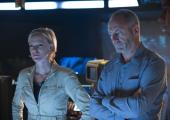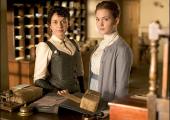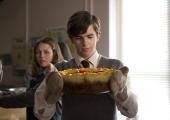Silk, BBC One

Is barrister-turned-writer Peter Moffat a credible witness? The jury's still out
There was a moment in last night’s Silk when a young solicitor turned up late for a trial. He was also an actor, he explained to his client’s counsel, and had to attend an audition. For a Head & Shoulders ad. The USP of Peter Moffat’s courtroom dramas is that, more than any writer since John Mortimer, he knows whereof he speaks. Having once been a barrister himself, the serpentine ins and outs of chambers, the politicking and skulduggery etc etc are his area of expertise. So you take it on trust that the events dramatised here are the truth and nothing but.








